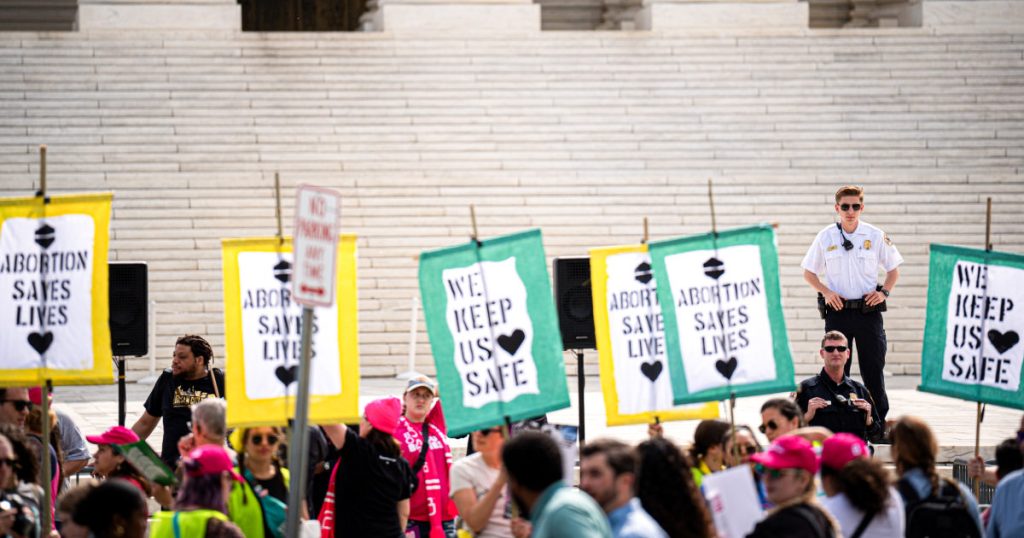Dr. Stacy Seyb, a maternal-fetal medicine specialist in Boise, Idaho, has had several patients experiencing severe pregnancy complications airlifted out of state since January. Among these cases was a woman whose water broke at around 20 weeks, posing a risk of infection. In these emergencies, ending the pregnancy may be necessary, but Idaho’s abortion ban has forced doctors to transfer such patients to comply with the law. The state’s ban includes criminal penalties for performing abortions, with limited exceptions for rape, incest, and saving the mother’s life, but no exception for protecting her health.
After oral arguments, the Supreme Court is considering if Idaho’s abortion ban violates federal law requiring hospitals to offer emergency care to patients in crisis. The justices appear split on the issue, with conservative members leaning towards supporting Idaho’s argument that federal law should not override state healthcare laws. St. Luke’s Health System, where Dr. Seyb works, has filed an amicus brief supporting abortion as a critical measure to protect patients from nonfatal harms, and as a means to prevent potentially risky out-of-state transfers for patients.
Since the Supreme Court lifted an injunction protecting doctors providing emergency care, six pregnant patients at St. Luke’s have been airlifted out of Idaho. Out-of-state transfers can delay care and come with high financial and emotional costs for patients. A common complication is when a patient’s water breaks early in pregnancy, with 54 such cases occurring last year before fetal viability. Doctors from Physicians for Human Rights, who filed an amicus brief in the case, recounted experiences of patients being transferred out of state for necessary care, highlighting the challenges faced by pregnant women in Idaho.
Dr. Sarena Hayer, a physician in Oregon, described a case where a severely ill patient from Idaho with a history of kidney issues was airlifted for care. Despite the patient’s wish for termination, she was transferred to Oregon and lost both fetuses. Another doctor mentioned a patient in Idaho who declined an airlift due to family obligations and financial concerns, resulting in the loss of her fetus. These cases raise concerns about the impact of Idaho’s abortion ban on pregnant patients’ access to necessary care and the challenges they face in seeking treatment.
Physicians for Human Rights emphasized the injustices faced by pregnant women in Idaho who are forced to seek care out of state due to the abortion ban. Dr. Michele Heisler highlighted the ethical implications of delaying definitive care for pregnant patients until they are at the brink of death. Dr. Michael Schneider, a maternal-fetal medicine specialist in Boise, shared experiences of patients facing complications but unable to leave the state for treatment. He stressed the acute vulnerabilities of pregnant women and the challenges they face in accessing necessary care under Idaho’s laws.
Overall, the cases highlighted by Dr. Seyb, Dr. Hayer, and Dr. Schneider underscore the detrimental impact of Idaho’s abortion ban on pregnant patients facing severe complications. The restrictions imposed by the ban not only lead to delays in care but also result in financial burdens and emotional distress for patients who must seek treatment out of state. The Supreme Court’s deliberations on the constitutionality of the ban will have significant implications for the healthcare and reproductive rights of pregnant women in Idaho and beyond.















